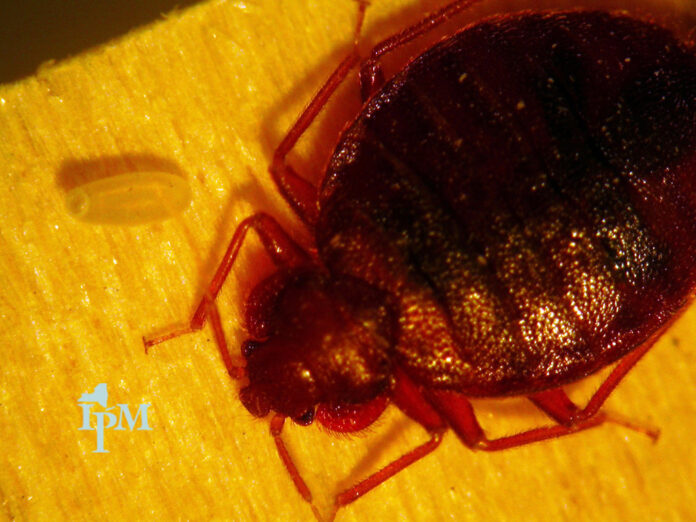Bed bugs: what are they?
A bed bug (scientific name Cimex secularists) is a flat, tiny, invasive insect that feeds solely on the blood of sleeping people and animals. Bed bugs are red-brown, and they range in size from 1mm-7mm. Although they rely on blood for survival, they can go several months without eating. With the ability of a female bed bug to lay up to 500 eggs in her lifetime, you can suffer from a severe infestation of just a few weeks. In this guide, you will learn how long it takes to get rid of bed bugs and how to prevent and control them.
Causes of bed bugs
There are many ways bedbugs can cause an infestation since they are highly adaptable. They may sneak into a new home as stowaways when luggage, furniture, and bedding are moved in. Buying used furniture and mattresses should be done with caution. An individual should detect bedbugs or droppings by performing a thorough visual inspection. Bedbugs can be found in vacant and clean houses. They can survive for up to two months without food. It is believed they can move from apartment to apartment by using the holes and hollows in the walls and the pipes and wires that run through them.
8 best tips to get rid of bed bugs
1. Ensure you have bed bugs, not fleas, ticks, or other insects
On our Identifying bed bugs Web page, you can compare your insect to pictures. (Extension agents are trained in pest control issues and are familiar with the area).
2. You shouldn’t panic
Even though eliminating bed bugs can be challenging, it isn’t impossible. Please don’t throw out everything you own because most of it can be repaired and saved. Getting rid of things is costly, could spread bed bugs to other people’s homes, and increase stress.
3. Don’t reach for the spray can without considering your treatment options

Take an integrated approach. Consider other options first. By utilizing integrated pest management (IPM), you may reduce your exposure to pesticides and reduce bed bug populations. Pesticides should always be used according to label directions or by a professional. There are resources available to help learn about treatment options.
4. Your bed sheets, blankets, bedspreads, and clothing that touches the ground should be regularly washed and dried
Doing so will decrease the number of bed bugs. If you do your laundry, clean the laundry containers/hampers to prevent bed bugs from hiding there.
5. Do-it-yourself freezing may not be effective for controlling bed bugs
Temperatures must remain very low for a long time for freezing to kill bed bugs. It is essential to use a thermometer when checking the temperature in the freezer to make sure it is cold enough to kill bed bugs. Freezing things outside could kill bed bugs, but several factors can affect the success of this method.
6. Bed bugs shouldn’t be passed on to others
Bed bugs make good hitchhikers. If you want to throw out a mattress or furniture that has bed bugs, you should cut it up or destroy it in some way so that no one else will take it and get bed bugs.
7. Cut back on bedbugs to keep from getting bitten
Some bedbugs can be removed by vacuuming thoroughly. Vacuum all cracks and crevices in your room, including upholstered furniture, beds, under the beds, around the bed legs, and rugs around your room. Use a different bag every time you vacuum so bed bugs cannot escape. The used bag should be placed in a tightly sealed plastic bag and disposed of outside.
8. Consult professionals if necessary.
If you hire an experienced, responsible pest control professional, Bed bugs can be eliminated quickly. Make sure you hire a company with a good reputation and request an IPM approach. Contact your state’s pesticide agency for guidance on hiring professional pest control companies. The Citizen’s Guide to Pest Control and Pesticide Safety of the EPA offers information about IPM approaches, how to choose a pest control company, safe pesticide handling, and emergency information.
How long does it take to get rid of bed bugs?
When they discover that their home has bed bugs, most people want to get rid of them. Since these pests spread so quickly, everyday social life cannot be resumed until bed bugs are eliminated, not to mention the inconvenience of dealing with the repercussions of their presence. If you have a bed bug infestation and are eager to get rid of it, you might be wondering: “how long does it take to get rid of bed bugs?” The short answer is:
In most cases, bed bugs can be eliminated within 2-4 treatment sessions over 3-6 weeks, depending on the level of infestation and the size of the house.
However, every situation is different. For instance, a minimal infestation in a studio apartment may be treated entirely after one session, typically taking between 1-3 hours. The number of treatments may need to be increased if the infestations are severe in multiple rooms of the home. Stay tuned to find out how long it typically takes to exterminate bed bugs in your house if you plan to do so.
FAQs (Frequently Asked Questions)
- Can you exterminate bed bugs with an exterminator in a short time?
Depending on the infestation level and the size of your house, it usually takes 2-4 treatment sessions over 3-6 weeks to completely eliminate bed bugs.
- Can bed bugs be killed instantly?
212°F (100°C) is the high steam temperature that immediately kills bedbugs. Steam should be applied slowly to the folds and tufts of mattresses, along with sofa seams, bed frames, and corners or edges where bedbugs might be hiding.
- Will bed bugs become more prevalent after treatment?
The chances of bed bugs returning after initial treatment are very high. For a few days after your initial service, you may notice a spike in activity and see more bugs than you did before it, but with each service, you should see fewer and fewer bugs.












